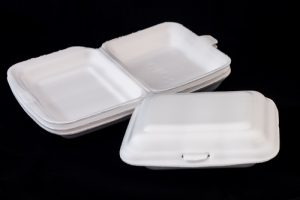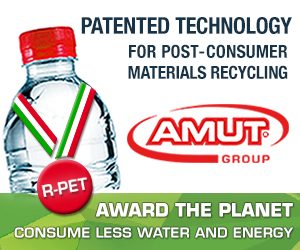 Restaurant owners and EPS industry stakeholders have sued New York City over its plans to ban foam polystyrene from use in food-service establishments. It’s the latest move in a deja vu cycle that has gone on for more than four years.
Restaurant owners and EPS industry stakeholders have sued New York City over its plans to ban foam polystyrene from use in food-service establishments. It’s the latest move in a deja vu cycle that has gone on for more than four years.
The lawsuit, announced Sept. 12 by the Restaurant Action Alliance of New York City, comes after the Big Apple declared in May it would ban foam food-service packaging beginning this fall. City officials with the New York City Department of Sanitation (DSNY) said they determined the material “cannot be recycled in a manner that is economically feasible or environmentally effective.”
Some manufacturers, restaurants, recycling companies and other stakeholders disagree with that assessment. They blasted the city’s move in a Tuesday release, claiming that not only is EPS recycling possible and economical, but it would have a larger environmental impact because it would seek to capture all EPS items, not just food-service packaging.
“Once again, New York City is ignoring the facts that prove polystyrene foam can be recycled – a denial that is costing the City a significant economic windfall through a combination of recycling revenue and landfill avoidance,” said Alan Shaw of Plastics Recycling, Inc., in the release. “We urge Mayor de Blasio to consider the facts of foam recycling.”
A spokeswoman for New York City’s legal department told Plastics Recycling Update the city will “vigorously defend the (DSNY) Commissioner’s determination, which is thorough, exhaustive and legally sound.”
The legal action comes as no surprise. It’s the latest step in a bitter and repetitive fight between industry stakeholders and the city.
New York City officials have been pushing for a ban on expanded polystyrene food-service packaging since at least 2013, when the New York City Council passed legislation imposing a ban that would take effect a year later. The delay, they said, would allow EPS proponents to demonstrate they could effectively recycle the material. But after that year ended, despite the industry pushing for a curbside foam recycling program, city officials were unconvinced.
The city moved forward with the initial ban in 2015, but a coalition led by Dart Container sued the city, claiming the ban violated a “clear statutory mandate” in the earlier legislation to implement a collection system if recycling EPS was viable. Later that year, a judge agreed with Dart and its supporters and overturned the city’s ban. The ruling stated there was a growing market for post-consumer EPS. The city appealed the decision, but an appeals court upheld the ruling.
The latest move by city officials to reinstate the ban included a report meant to demonstrate they had closely evaluated EPS recycling potential. Ultimately, the report concluded the process was unrealistic.
The Restaurant Action Alliance points to the 2015 legal decision striking down the ban as precedent in favor of EPS advocates.
“The de Blasio Administration should comply with the Court’s directive, drop its latest misguided attempt to ban soft foam, and implement the comprehensive recycling program proposed and financially supported by industry participants,” said Randy Mastro, lead attorney for the EPS proponents.
More stories about courts/lawsuits
- Brightmark bankruptcy: Parent company wins auction bid
- Resin producer, environmental group lawsuits heat up
- Clorox fined millions for ocean-bound content claims



